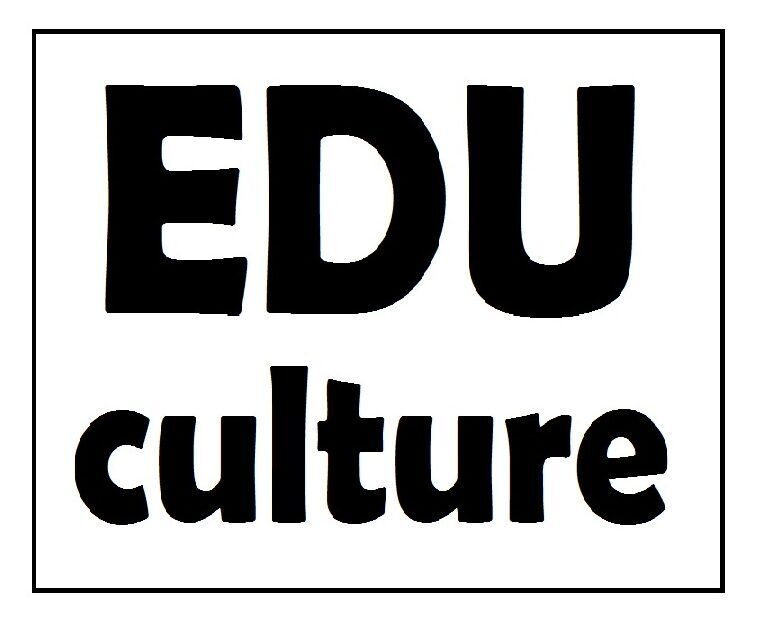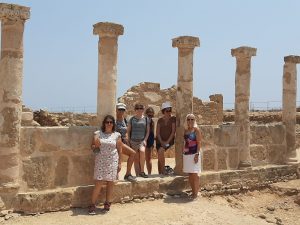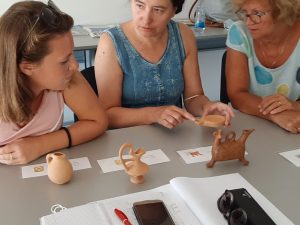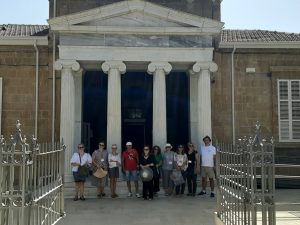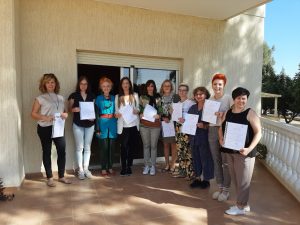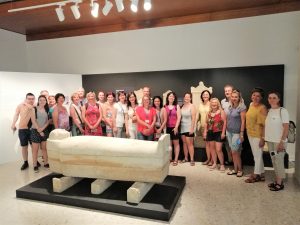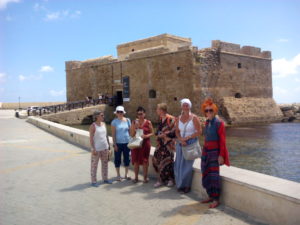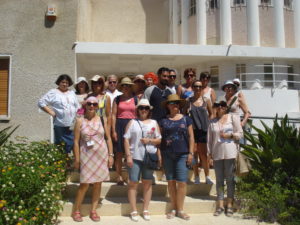MUSEUM EDUCATION- Using museums as a resource in teaching and learning (6-day/ 7-day course) Limassol
Learning is not limited to the classroom. Museums are important educational environments and offer a considerable learning potential. Pupils enrich their learning in various fields and gain experiences in a new setting.
Museums are important educational environments and offer a considerable learning potential. Collections exhibited in museums provide pupils with a tangible connection with time, places, events, or people and allow them to experience the evolution of human history and cultural heritage. Learning in museums helps pupils understand the historical value of objects, respect diverse cultures and understand multiculturalism. Exploring museums gives students the ability to engage actively in the process of acquiring knowledge and to express thoughts and emotions. Effective use of museums can lead to multifaceted learning, development of critical thinking skills and acquisition of lifelong learning skills of 21st c.
This 6-day course gives participants theoretical background about Museum Education, as well as practical guidelines to integrate activities and implement programmes across the areas of curriculum and school life. Discussions, site visits and group work will enrich sharing ideas and exchange of practice between participants. There is also the possibility to extend the course to 7-day.
The cost for 6-day course is 480 euro and for 7-day course is 560 euro. It includes course fees, course material, entrance to museums and tours.
Objectives
During the course, participants will:
- be informed about the role, objectives and benefits of Museum Education
- study the educational role of the museum
- study the framework of Museum Education (characteristics, approaches and techniques)
- examine the steps of implementing school visits and organizing activities in museums, galleries, monuments and archaeological sites
- examine the use of ICT tools for collecting data; for sharing data and communication; for doing creative activities
- get in touch with educational programmes in museums and archeological sites in Cyprus
- visit sites, museums, monuments etc. and plan activities/ programmes
- take part in activities in museums and archaeological parks
- practice a variety of activities in museums, cultural places, art galleries, archaeological sites
- examine examples of good practice from participants’ schools.
Methodology
The working methods that are used are highly practical and participatory. The experiential method is used to encourage the search for contemporary pedagogical theories and teaching approaches. The hands-on approach is used to examine real examples, case studies, surveys and simulations. The group activities foster mutual learning, cooperation and collaboration between participants. The discussions encourage sharing ideas, intercultural dialogue and the exchange of good practices between the participants. Social, networking and cultural activities give participants the opportunity to establish professional cooperation and links with teachers, staff, schools and organisations in Europe. At the end of the course, participants fill in an e-questionnaire for evaluation.
Preparation
After confirming registration, participants will be informed about the details of the course (arrival, daily programme etc.). Participants will be able to introduce themselves and bring a few examples of activities/ programmes in museums and archaeological places implemented by their school/ community.
Course Schedule
DAY 1
- Museum Education: A new way of teaching & learning
- Benefits of Museum Education
- Museum Education & lifelong learning skills
- Activities for team building
- The Museum and its mission
- The Museum through the ages
- Visit to Kourion archaeological site
- Discussion about activities in archaeological sites.
DAY 2
- Visit to Limassol Old city center, Carob Mill Museum, Medieval Castle & Museum and other monuments.
- Doing activities in the city center.
- Data collection for the group work
- Tools for collecting data
- ICT tools for sharing data & communication
DAY 3
- The educational role of the Museum
- History of Museum Education
- Framework of Museum Education
- Steps for planning learning activities in museums
- Activities in museums & cultural places
- ICT tools for creative activities
DAY 4
- Approaches for Museum Education
- Learning from objects
- Activities in art galleries
- Activities in archaeological sites & open air cultural places
- Orientation Activities
- Museum Education programmes in Cyprus
DAY 5
- Visit to the Cyprus Theatre Museum, Limassol Archaeological Museum and Municipal Garden
- Data collection for group work.
DAY 6
- Techniques for Museum Education.
- Activities for cultural awareness and expression.
- Participants complete the group work, presentation of group work, review of the course, certificates.
DAY 7 (optional)
-
TOUR TO PAPHOS TOWN
It includes a tour with 5-stops (9:00 am- 5:00 pm)
• Tomb of the kings
• Catacomb of Agia Solomoni
• Paphos Archaeological Park with Roman mosaics
• Paphos Medieval Castle and port
• Petra tou Romiou (birthplace of Aphrodite).
Course fees
480 euro (6-day) & 560 euro (7-day)
Sessions
-
• 02.03.2024 - 07.03.2024
• 11.05.2024 - 16.05.2024
• 13.07.2024 - 18.07.2024
• 28.09.2024 - 03.10.2024
• 09.11.2024 - 14.11.2024
• 14.12.2024 - 19.12.2024
• 11.01.2025 -16.01.2025
• 01.03.2025 - 06.03.2025
• 10.05.2025 -15.05.2025
• 19.07.2025 - 24.07.2025
• 30.08.2025- 04.09.2025
• 01.11.2025 - 06.11.2025
• 06.12.2025 - 11.12.2025
